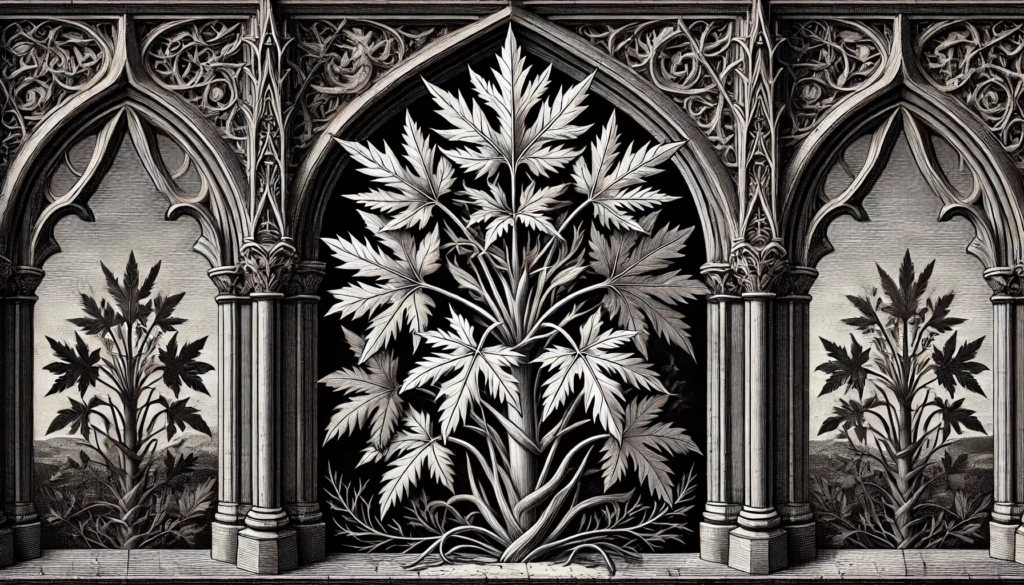

Home » Cat Plants » Does the Lovage Plant Pose a Threat to Cats

Lovage (Levisticum officinale) is an herb in the parsley family that is toxic to cats. The plant contains volatile oils, especially phthalide lactones, which can cause adverse effects if ingested by felines.
Lovage is a tall, perennial herb native to the Mediterranean region and is commonly grown in herb gardens for its celery-like flavor.
Ingestion may cause mild gastrointestinal upset, but is generally not life-threatening.
Ingestion can result in mild symptoms like vomiting, diarrhea, or drooling. Rarely fatal but may require veterinary care.
Eating these plants can lead to more pronounced symptoms like abdominal pain, lethargy, or difficulty breathing. Veterinary intervention may be necessary.
Ingesting even small amounts can cause severe symptoms like organ damage, seizures, or cardiac failure without rapid treatment.
All parts of these plants are extremely poisonous to cats and can quickly lead to death, even with immediate veterinary care.
** Please note: Please note that toxicity level can vary based on the amount ingested and the specific cat. It's always best to keep these plants completely inaccessible to cats and seek immediate veterinary care or call the poison hotline if you suspect your cat has ingested any part of a toxic plant.
If your cat has ingested any part of the lovage plant, watch for these symptoms:
If you suspect your cat has eaten lovage, contact your veterinarian or the ASPCA Animal Poison Control Center at (888) 426-4435 immediately for guidance.
If you believe your cat has ingested lovage, your veterinarian will perform a thorough examination and ask about your cat’s exposure to the plant. Steps in the diagnostic process may include:
For more information on pet poisonings, visit the ASPCA Animal Poison Control Center: https://www.aspca.org/pet-care/animal-poison-control

A: Yes, lovage is toxic to cats. The plant contains volatile oils and other compounds that can cause adverse effects like gastrointestinal upset if ingested.
A: The lovage plant is considered poisonous to various animals, including cats. It contains toxic components such as phthalide lactones, which can lead to symptoms like vomiting and diarrhea.
A: Yes, several herbs, including lovage, are toxic to cats. Others include garlic and chives, which can damage a cat’s red blood cells and lead to serious health issues.
A: Lovage is also toxic to dogs, with its toxic components causing mild to severe symptoms depending on the quantity ingested. Dogs that consume lovage may experience digestive issues and other complications.
A: While the safety of parsley for cats is debated, the ASPCA lists it as toxic. It’s best to avoid letting your cat consume parsley to prevent potential health risks.
A: To protect your cat from lovage poisoning, keep the plant out of reach and avoid growing it in areas where your pet has access. Consider using cat-safe herbs and plants in your garden instead.
Lovage has a long history of use in traditional medicine and as a culinary herb. Its use dates back to ancient Greek and Roman times, where it was valued for its medicinal properties and believed to be an aphrodisiac.
In the Middle Ages, lovage was used to treat digestive issues and respiratory ailments. The plant was also believed to ward off evil spirits and was often planted near homes for protection. Today, lovage is primarily grown as a culinary herb and is used to flavor soups, stews, and other dishes.
Please note: The information shared in this post is for informational purposes only and should not be considered as veterinary medical advice.
🐾 A hilarious or heart-melting cat video
🐾 Our latest paws-on review of a cool cat toy